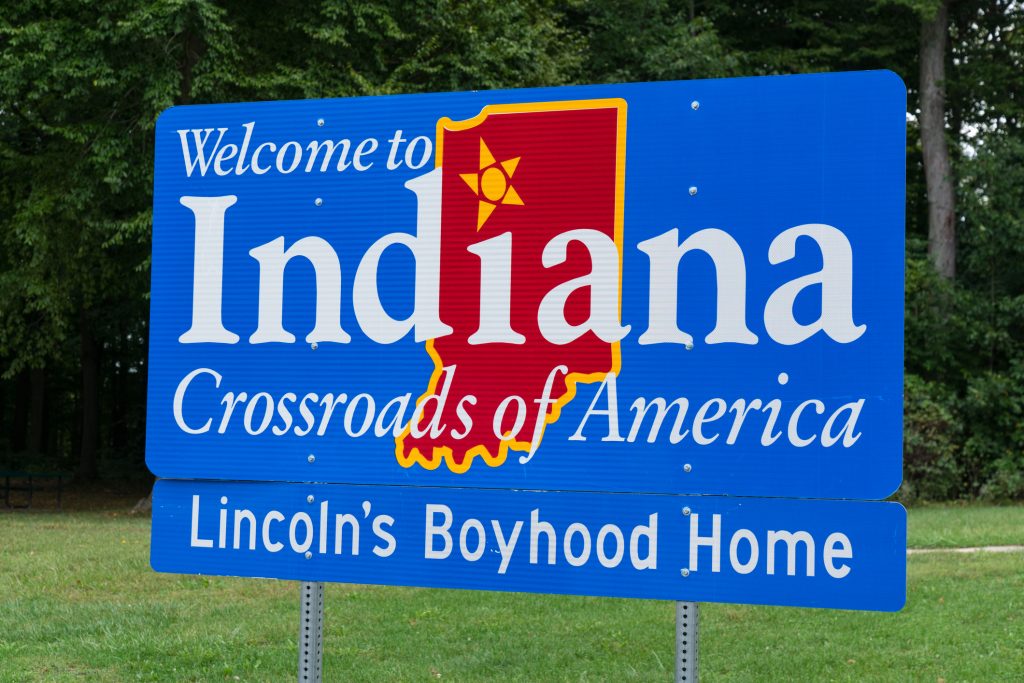Indiana Lawmakers File iGaming Legislation as Sports Betting Continues to Grow
Posted on: January 13, 2021, 01:59h.
Last updated on: January 13, 2021, 12:15h.
Indiana lawmakers have filed bills to open the door to online casino gaming in the state, as many have expected.

State Sen. Jon Ford (R-Terre Haute) told Casino.org Tuesday that the legislation is a “natural progression” for gaming in the Hoosier state. His bill comes two years after the General Assembly passed an expanded gaming bill that legalized sports betting.
“The language in this bill is very, very similar to sports wagering, and many of the back office mechanisms in place for consumer protection, we already have in place for sports wagering,” he said. “So, really, a lot of the infrastructure’s already there.”
Each licensed casino in the state could partner with as many as three iGaming providers, the same number of skins available for sports betting.
One difference is the tax rate. While Indiana assesses a 9.5 percent tax on sportsbook adjusted gross revenues (AGR), it would levy an 18 percent tax on iGaming apps. Of that, 15 percent would go to the state and the remaining three percent would go to the local government for the licensed casino.
The state taxes brick-and-mortar casinos on a graduated basis. Casinos pay a 15 percent tax on the first $25 million of AGR. The maximum rate for casinos to pay is 40 percent, and that’s only for proceeds greater than $600 million.
The movement towards iGaming in the state became public in August after Full House Resorts President and CEO Dan Lee said he expected legislation, in part because of the COVID-19 crisis.
If passed, Indiana would join Delaware, New Jersey, Pennsylvania, and West Virginia in offering iGaming. Michigan, too, has passed online casino legislation and is expected to allow applications to be launched soon.
Ford: Online Gaming Attracts New Players
Ford’s Senate bill has yet to be published on the General Assembly’s website. However, state Rep. Alan Morrison’s companion bill for the state House, HB 1406, was published on Tuesday. The Covington Republican also serves as the Assistant Majority Floor Leader.
The fiscal note tied to the House bill estimates that iGaming taxes could reach between $42.9 million and $85.8 million by the fiscal year 2026. However, it also would have an impact on retail casinos between $32.8 million and $64.5 million. After accounting for fees and supplemental taxes, the projected net gain would be between $10.7 million and $21.7 million.
However, Ford’s not so sure there will be that much cannibalization of the brick-and-mortar casinos. He cited a Caesars Interactive study from 2017 that indicated 80 percent of its online players in New Jersey were new customers.
“I thought going in with sports wagering that there was a consumer we were not attracting to the gaming industry here in Indiana,” he said. “And I think it’s been proven with sports wagering that there was a niche that we weren’t tapping into. I think that iGaming would appeal to that group.”
That niche includes a younger population that generally does not go to casinos, as well as others staying away from casinos because of coronavirus concerns.
Sports Betting Success May Help iGaming
Ford hadn’t heard the Indiana Gaming Commission December report prior to the interview. But he knew that sports betting in the state still improved on its handle. However, even he seemed surprised to hear that Hoosier bettors wagered more than $313 million on sports last month.
“Holy moly! That’s, what, $60 million more than last month,” he said.
Indiana reported a handle of $251.4 million in November, meaning the handle jumped by 24.5 percent in December. December also marked the sixth straight month the handle has grown.
Of the $313.1 million wagered in December, the IGC reports online apps accounted for 84.1 percent of the total.
It’s that kind of performance, especially in the wake of mobile sports betting opening in Illinois in recent months, that gives Ford confidence iGaming will pass in the legislature.
Sports Betting vs. iGaming – An Inside Look
How much more popular is iGaming than sports betting? Take a look at the most recent numbers from the Pennsylvania Gaming Control Board.

The handle for online slots and table games is more than five times the handle for sports betting. In addition, iGaming has also generated more than double the taxes that sports betting has since July.
Note: Pennsylvania state tax on both sports betting and online slots is 34 percent. The state tax on online table games (blackjack, roulette, etc.) is 14 percent.
Indiana Lawmakers May Consider VGTs, Too
The iGaming bills aren’t the only ones that state lawmakers will consider in Indianapolis. A group of business organizations is pushing to legalize video gaming terminals statewide.
Already, three bills have been filed to legalize terminals, although two of them have limited VGTs to just veterans organizations.
Supporters of VGTs say the machines help small businesses generate revenue. In addition, tax dollars would go to local communities that allow the games instead of the counties with licensed casinos.
The terminals would place a $2 cap on bets, with a maximum payout of $599. Businesses seeking gaming machines include bars and truck stops.
Ford, though, said he does not believe there’s support for those machines in the legislature, and he has some concerns about them himself. Casinos restrict attendance to adults age 21 and older. That would not be the case in some places hosting video terminals.
“I’d hate to go to a TGI Friday’s and see VGTs there,” Ford told Casino.org.
No comments yet